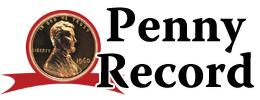Introduction to Review of Governors
Last updated 9/14/2021 at 8:53pm
This article will be the beginning of a series in which I will examine and comment on the various governors in office during my political career. I served in the Legislature during the tenure of eight different governors. In effect, this series will be remembrances of occurrences during my tenure in office and my relationship with the various governors.
In Texas the governor’s office originally was extremely weak. It was established by the constitution adopted in the 1800s following the Civil War. Texans, still being bitter over carpetbag government imposed on Texas by the United States had no desire to arm a governor with great powers.
Unlike many other states, the governor has no authority in Texas to appoint administrative offices such as the attorney general, comptroller, land commissioner, agriculture commissioner or the state treasurer. In Texas the Constitution provided for such administrative offices to be elected by the people.
The same continues in effect today. The principle power of the governor of Texas is his power of veto and to appoint lesser boards and commissions that are regulatory in nature. The Texas governor’s most powerful weapon is the right of line-item veto of the appropriations bill.
Although Price Daniel was the governor when I was sworn into office in November of 1961, his term expired approximately two months later. I had little input or relationship politically with Governor Daniel. Governor Daniel’s failed to be re-elected primarily because of the backlash of voters concerning Texas’ first sales tax. Governor Daniel had opposed such a tax but once passed by the
Legislature, allowed it to become law. Voters’ displeasure with the tax was evidenced by the fact that approximately 60 new members of the state House of Representatives were elected.
Interestingly enough the known sponsor of the sales tax bill was a staunch opponent of the sales tax. This was the result of a strategy by State Representative Charlie Wilson (former congressman for Orange, County) which backfired. Wilson introduced his own version of the sales tax which was much more compatible with the desires of the opponents. Unfortunately for Wilson, advocates of the sales tax offered a complete substitute amendment for Wilson’s bill which was adopted.
Therefore, when finally passed, records reflected in the House of Representatives showed Charlie Wilson as the sponsor of Texas’ first sales tax.
Partially as a result of the sales tax battle, Daniel lost the election, running third in the election in which John Connally was selected governor.











Reader Comments(0)